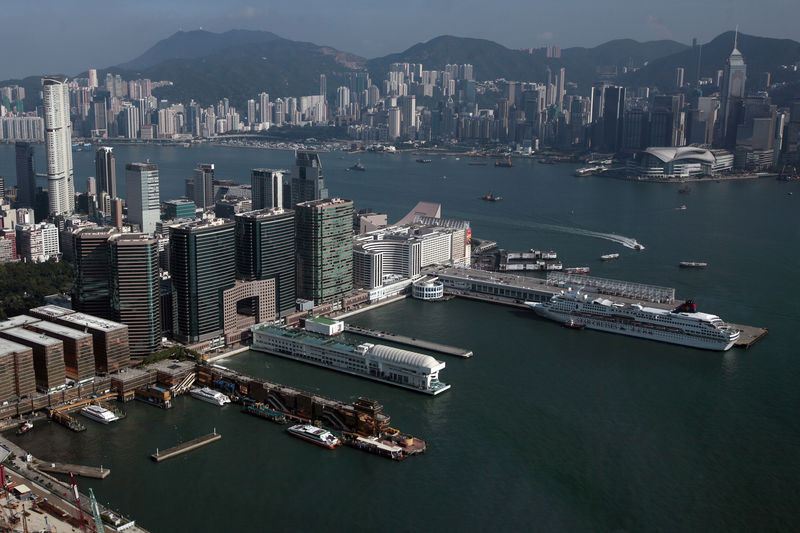HONG KONG (Reuters) - Business activity in Hong Kong's private sector fell to its weakest in 21 years in October, weighed down by anti-government protests and softening global demand, according to an IHS Markit survey published on Tuesday.
More than five months of often violent street protests have battered the city's retail and tourism sector, with preliminary government data showing the economy slid into recession for the first time in a decade in the third quarter.
Demand from mainland China declined at the sharpest pace in the survey's history - which started in July 1998 - while companies also cut back on purchasing and input inventories at the fastest clip since the series began, IHS Markit said.
"Hong Kong's private sector remained mired in one of its worst downturns for the past two decades during October, with the latest PMI survey signaling a deepening economic malaise," said Bernard Aw, principal economist at IHS Markit.
"As new orders continued to fall sharply, led by a record decline in demand from mainland China, firms were becoming increasingly pessimistic about the outlook."
Its seasonally adjusted headline Hong Kong Purchasing Manager's Index (PMI) fell to 39.3 in October, down from 41.5 in September and signaling the worst deterioration since November 2008, during the global financial crisis.
A survey reading above 50 indicates expansion, while a figure below 50 denotes contraction.
Almost all growth engines in the Asian financial hub stalled over the summer as stores, shopping malls and restaurants shut to avoid clashes between riot police and protesters, while the Sino-U.S. trade war intensified. Hong Kong is one of the world's most popular tourism destinations and a bustling container port.
Protesters are angry by what they see as Beijing's tightening grip over the city's cherished freedoms promised under a "one country, two systems" formula when Britain returned it to Chinese rule in 1997.
The protests escalated in mid-June and show no sign of abating as demonstrators keep up their calls for universal suffrage and an independent inquiry into what they see as excessive police action, among other demands.
Police, who have at times fired rubber bullets and tear gas at petrol bomb-throwing protesters, say they have shown restraint in the face of escalating violence.
